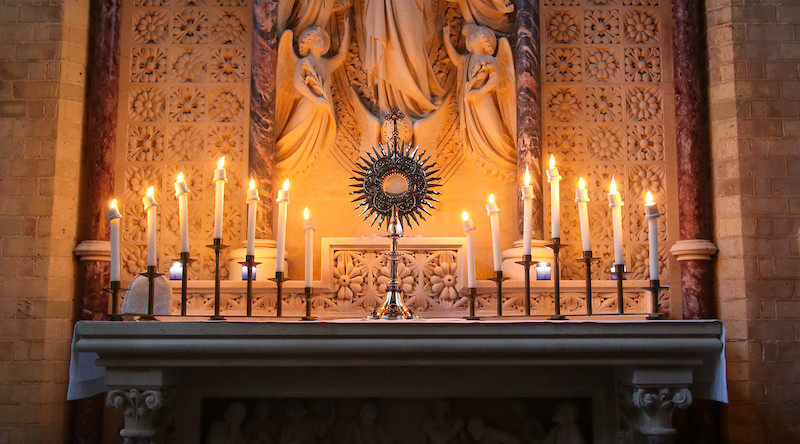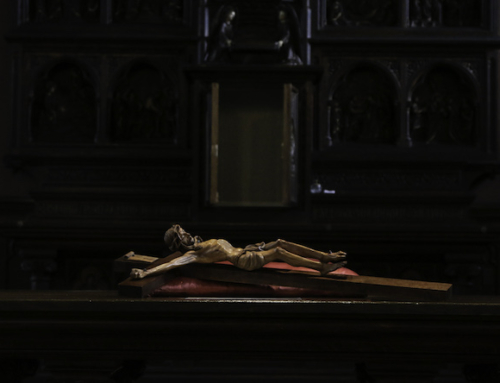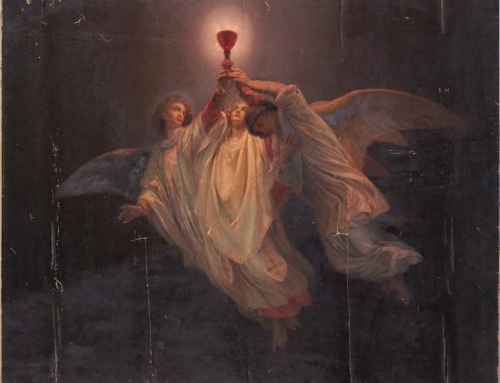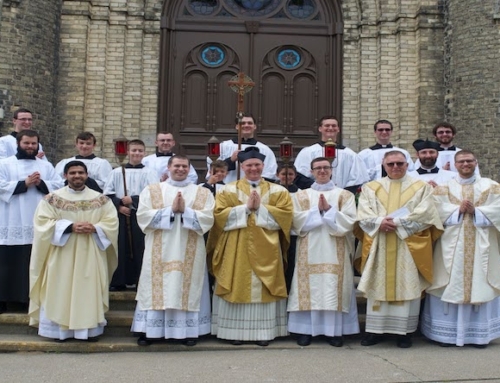The eighth chapter of the Book of Leviticus brings us to the Israelites’ encampment at the foot of Mount Sinai, after their march through the scorching desert. Here we find the entire community assembled at the entrance of the tabernacle, before Aaron and his sons disappear inside for seven days to be ordained as priests of the Lord. As part of this long and mysterious rite, they become extensions of the altar of sacrifice—the altar is anointed with oil, and Aaron is anointed with oil; the altar’s extremities and base are anointed with blood, and Aaron’s extremities and foot are anointed with blood. As is the rite’s requirement, Aaron and his sons burn sacrifices. The Lord then brings the ordination rite to a dramatic conclusion as flames rush from the Lord’s presence to completely consume the sacrifices on the altar (Lev 9:23-24). By that same act, the Lord’s divine fire sanctifies the fire that Aaron and his sons originally kindled on the altar. Keeping in mind Aaron’s new connection with the altar, we can understand that the Lord igniting and sanctifying the altar is a visible sign of his Spirit igniting and sanctifying those who are to serve him as priests.
The Rite of Ordination today does not involve setting anyone on fire—for obviously good reasons—but this account from Leviticus presents a powerful image of the Holy Spirit igniting the heart of the priest. The priesthood is not a matter of doing, but of being. Jesus Christ conforms the ordained man to himself as both priest and altar. The heart of the priest is connected to the new altar of sacrifice: the Cross of Christ. At this new altar, the priest unites his own sacrifice and the sacrifice of his flock to the glory of God the Father at the Mass. No man is worthy of the grace of being conformed to Christ. It is the work of God. Adding wood to a pile will never make it catch fire. The ignition must come from outside because it is a sharing in the divine nature of God, who himself “is a consuming fire” (Deut. 4:24). To stress the importance of this, God commanded Moses that “the fire on the altar is to be kept burning; it must not go out” (Lev 6:5). In fact, in this same place God gives this commandment three times! The fire on the altar of the priest’s heart must not go out. Should the fire stop, the heart ceases to share in God, the very source of its burning. All that would remain is a heart of cold ashes.
Were there ever bonfires that were brighter and hotter than the one on the altar of sacrifice? Of course. But the fire on the altar was the one that God chose as the only one acceptable for sacrifice (Lev 10:1-2). Are there people who seem like they could do “the job” of a priest better? Of course. But the priest is the one whom God chose, regardless of that man’s failings and the brokenness of his human nature. A man is not a priest because of what he does, a man is a priest because of what God has done.
✠
Photo by Fr. Lawrence Lew, O.P. (used with permission)







